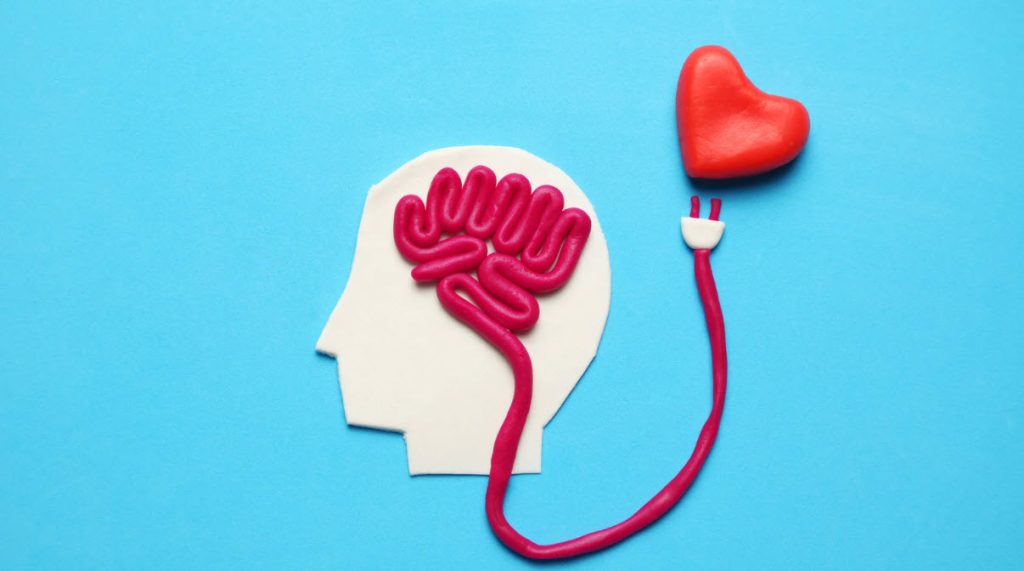Power Breaks – The Best Way to Mental Health
Do You Remember to Take a Break?
Breaks are those little “breathing spaces” you sprinkle throughout your day. 😉
Between meetings – between tasks – between all the natural transitions you experience daily.
They can be anything from a tiny 60-second microbreak to a proper lunch break.
It can also be the free time you give yourself when you’re not working or handling practical chores.
Take Breaks Seriously
It’s not just fun and games when we talk about how a good break culture brings significant value to workplaces.
Breaks act as a form of “maintenance” for the brain.
They provide your brain with the necessary time to tidy up, recharge, boost creativity, regulate emotions, and strengthen memory.
By incorporating regular breaks into your day, you give your brain the best conditions to perform optimally.
What Happens in Your Brain When You Take a Break?
When you take a break, several physical processes occur in the brain that help restore its functions and promote well-being:
🔹 Replenishment of Neurotransmitters: When working intensely, your brain depletes neurotransmitters like dopamine and serotonin, which are crucial for motivation, focus, and mood. A break allows your brain to restore these chemicals, improving your energy, cognitive performance, and emotional balance.
🔹 Reduced Cortisol Levels: Breaks help lower the production of the stress hormone cortisol. High cortisol levels over time can harm the brain and impair memory, so breaks help protect against stress-related damage.
🔹 Activation of the Default Mode Network (DMN): During breaks, your brain shifts from task-oriented thinking to the DMN, a network of brain regions that activate during rest. The DMN is associated with introspection, creative thinking, and processing memories and information.
🔹 Improved Blood Flow: Breaks increase blood circulation to the brain, delivering more oxygen and nutrients to brain cells, which enhances brain function and mental clarity.
6 Benefits of an Effective Break
1. Preventing Overload: “Brain Reset”
Imagine your brain as a desk cluttered with papers and tasks.
When you work without breaks, the desk gets messier, making it hard to find important documents.
Taking a break is like stepping away for a moment to tidy up. You remove unnecessary clutter and organize what’s important, giving you a clearer overview.
Research shows that prolonged focus can lead to mental fatigue, making it harder for the brain to process new information effectively.
A break allows the brain to clear out cognitive waste, improving your ability to concentrate and make decisions.
2. Recharging Cognitive Resources: “The Battery Charger”
Taking a break works like plugging your phone into a charger—your brain needs time to recharge its cognitive resources.
During a break, stress hormone levels drop, and neurotransmitters responsible for memory and learning get a chance to regenerate.
A study from the University of California found that short breaks, like a walk or a mindfulness exercise, can boost brain energy and improve cognitive performance by replenishing mental resources.
3. Boosting Creativity: “Creative Fuel”
A break can stimulate creativity by allowing your brain to disconnect from intense focus and see things from a new perspective.
When you take a break, the brain activates the default mode network (DMN)—the part responsible for creative thinking and problem-solving.
You might recognize this from moments in the shower when ideas suddenly pop into your head!
Research from Stanford University shows that walking—an active form of taking a break—can enhance creativity by giving the brain space to form new connections.
👉 (Source: Stanford University Study on Walking and Creativity)
4. Emotional Regulation: “Stress Equalizer”
Breaks help regulate emotions and reduce stress.
When you pause, your brain processes and tones down emotional reactions triggered by working under pressure—like taking a deep breath to release built-up tension.
A study from the University of Bristol found that regular breaks throughout the workday can help lower stress levels and improve overall emotional well-being.
5. Strengthening Memory: “Filtering Information”
Breaks help your brain organize and filter the information it has gathered—like tidying up a folder system to ensure important documents are stored properly.
Breaks support memory by helping the brain transfer information from short-term to long-term storage.
6. Strengthening Identity: “Fine-Tuning Your Inner Compass”
When you take breaks in your daily routine, you create space for reflection and self-awareness.
This gives you a chance to reconnect with your values, purpose, and passions—things that are easy to overlook in a busy life.
Breaks provide a moment to process impressions, emotions, and thoughts, helping you navigate decisions and challenges more consciously.
You check in with your inner compass, strengthen your self-understanding, and move forward with greater clarity, calm, and direction.
So, when’s your next break? 😉

